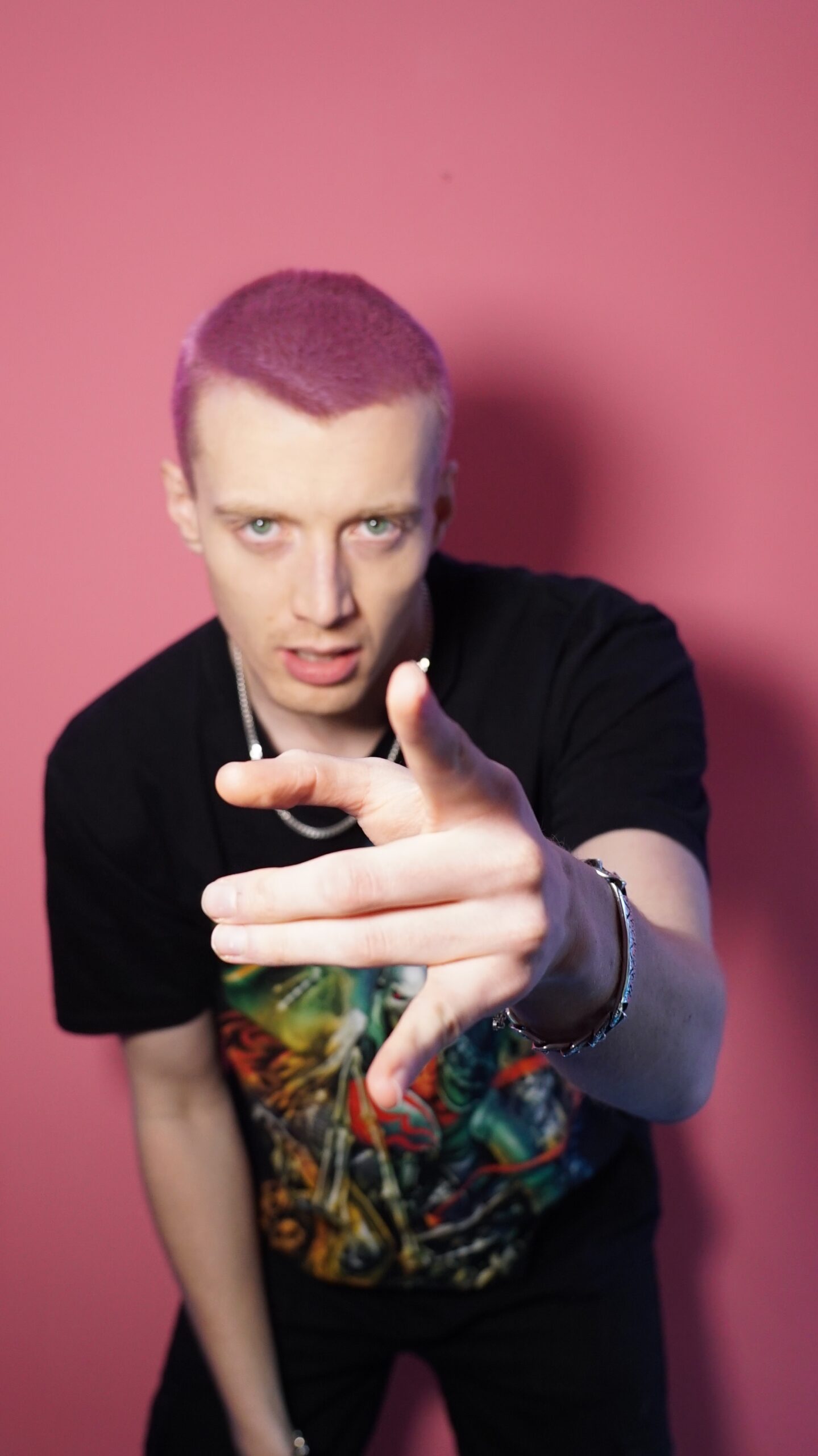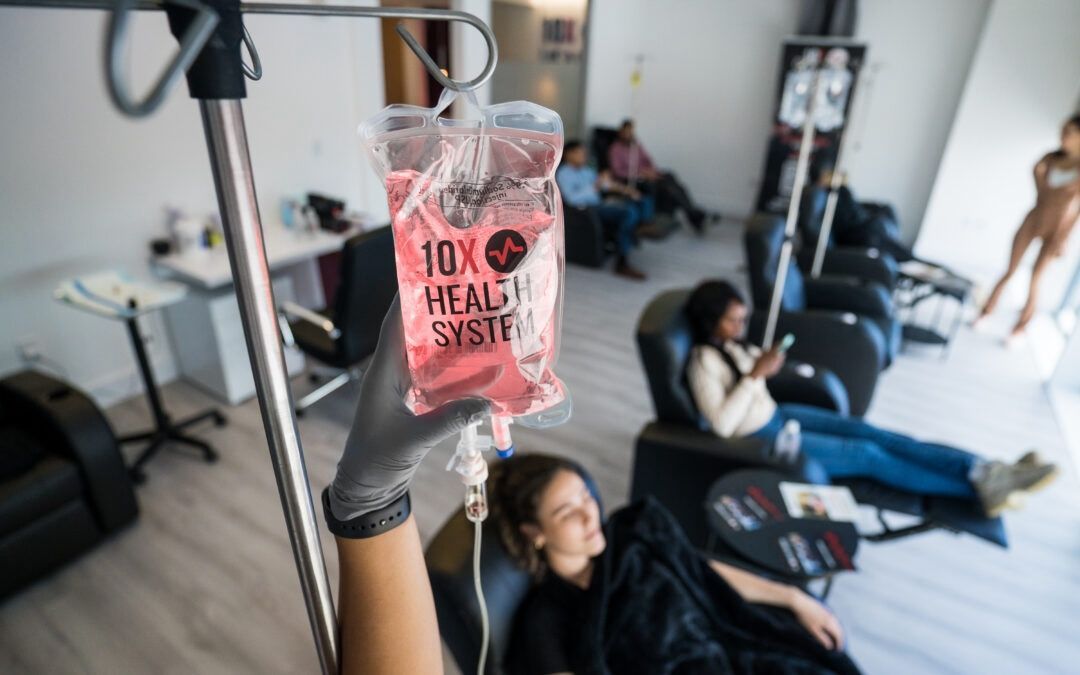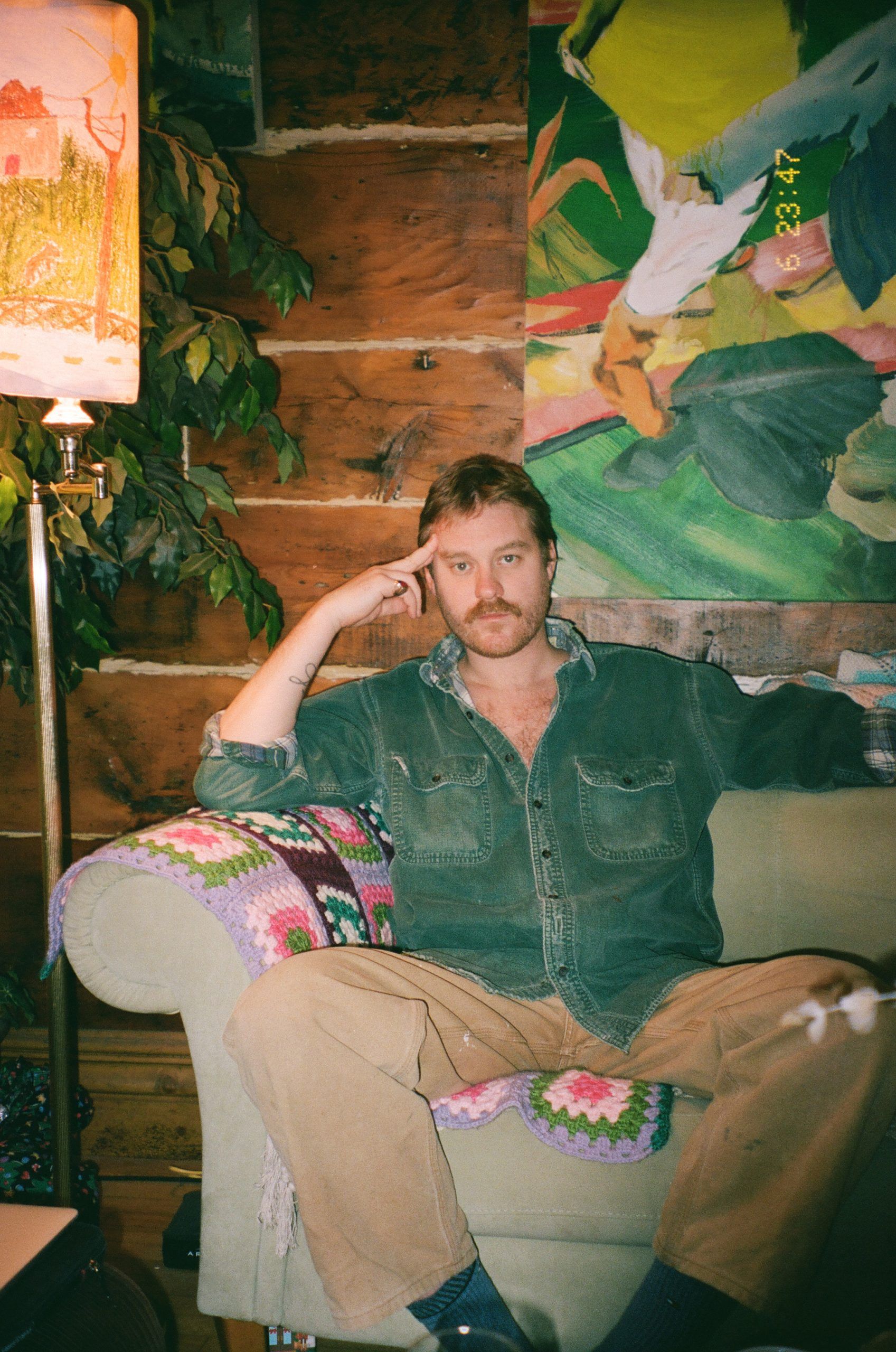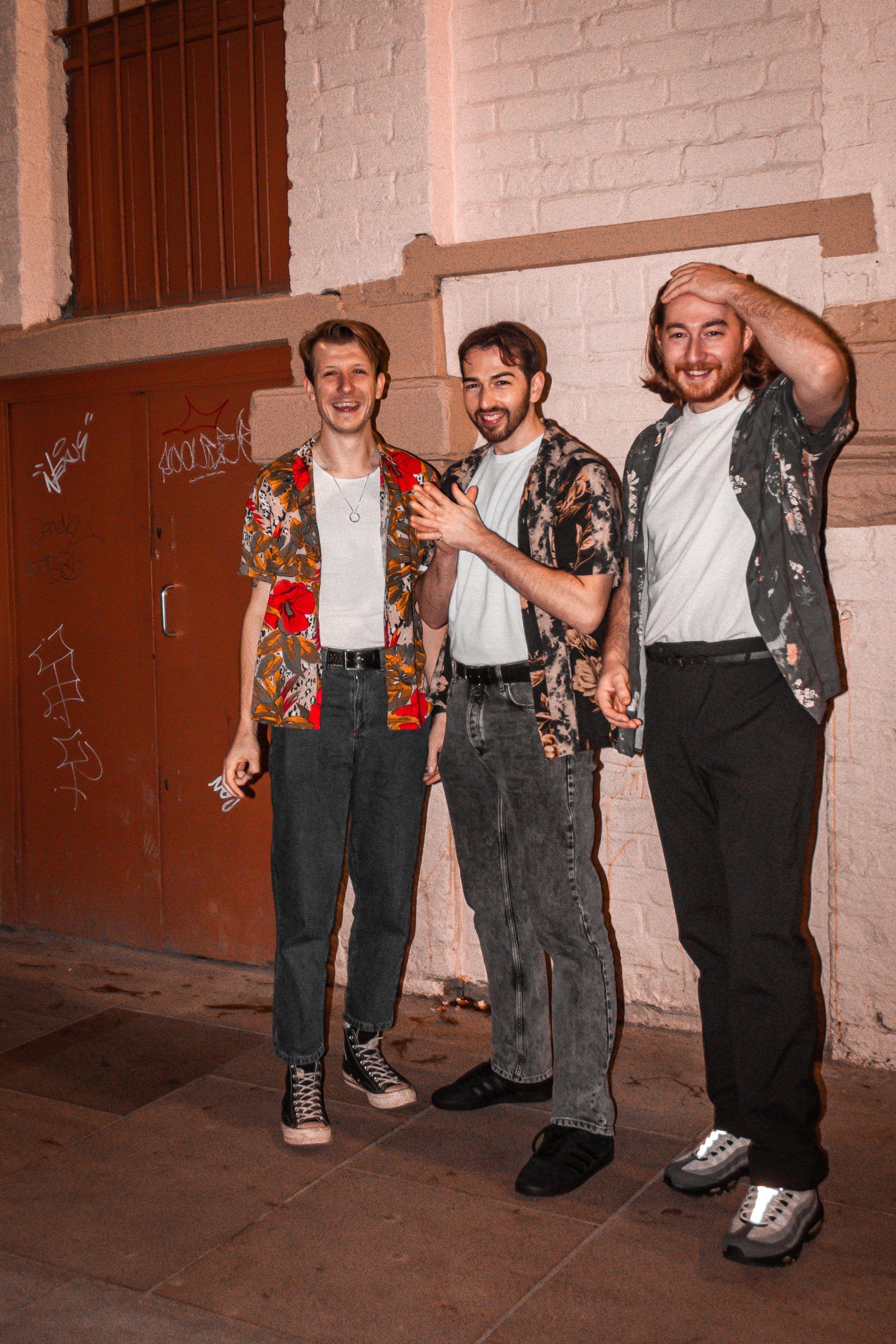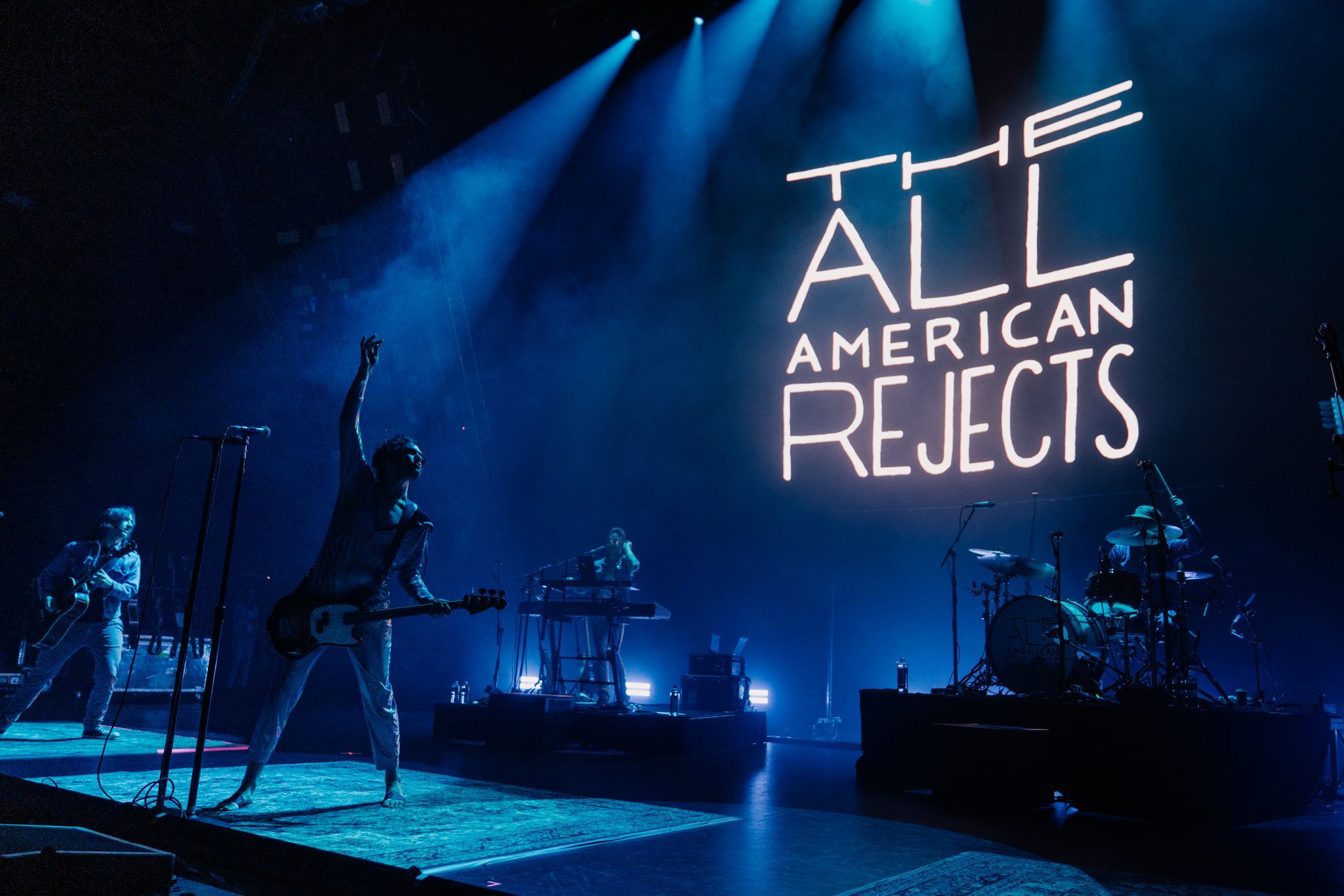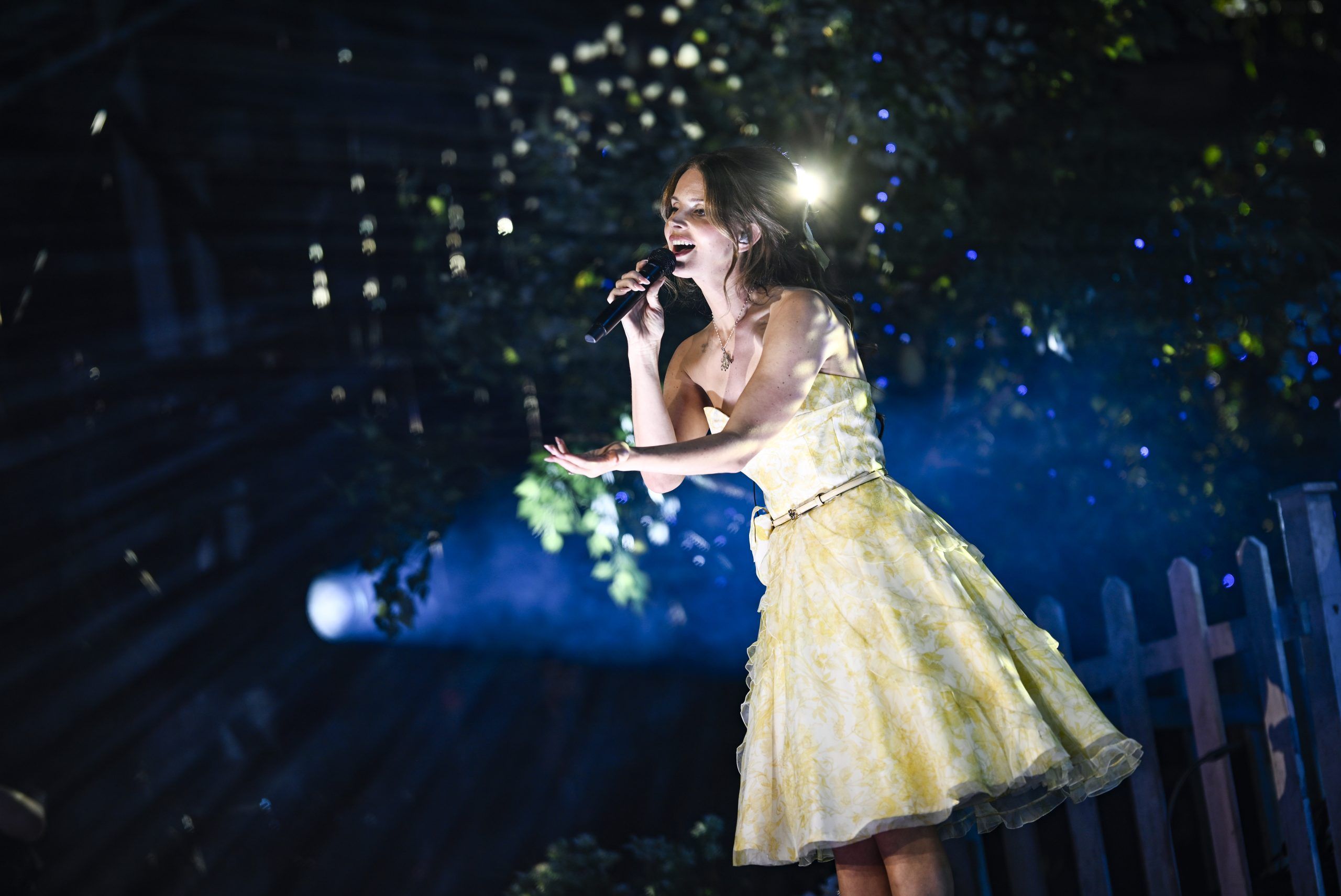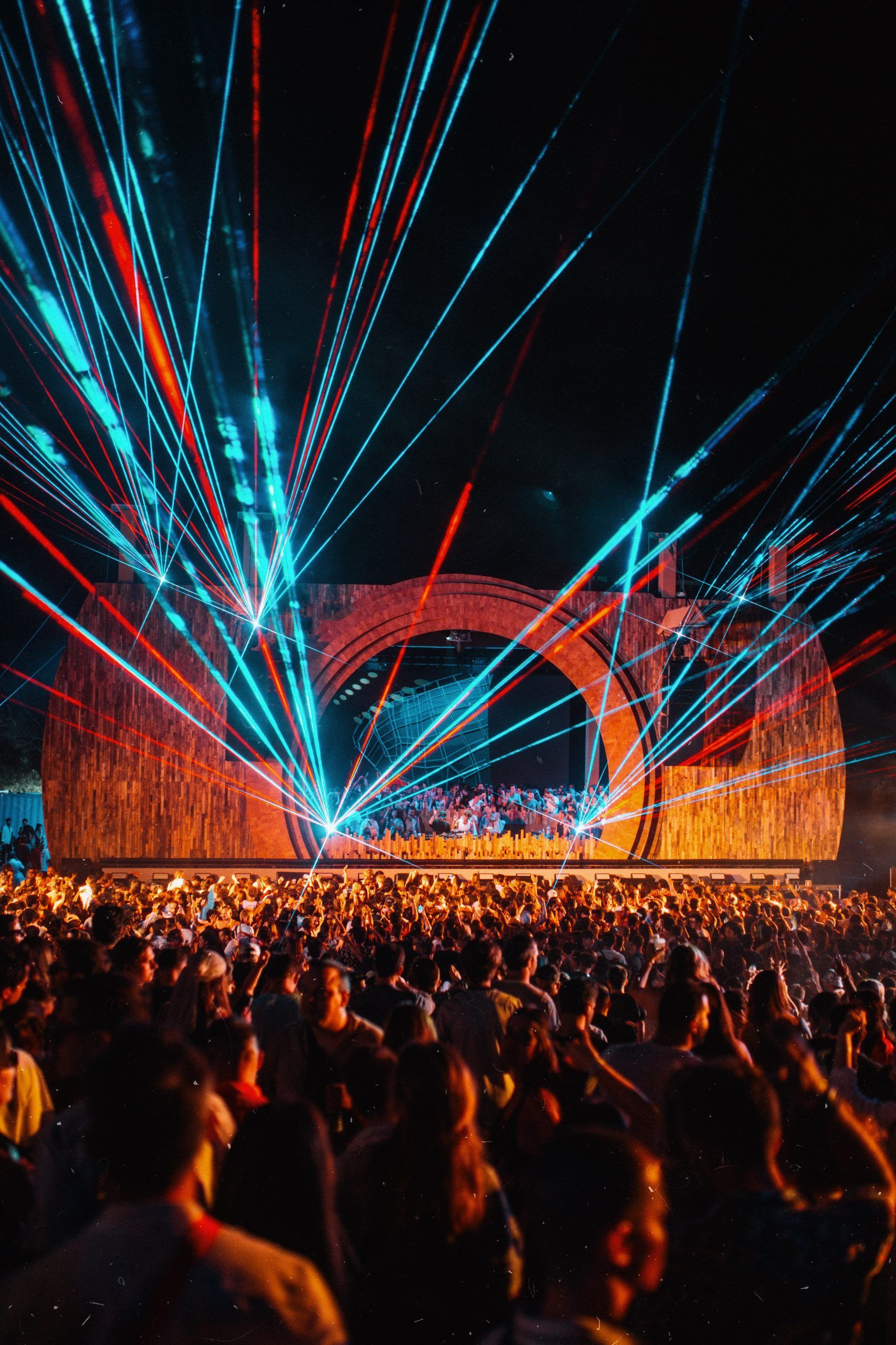If there is one person you want in your corner championing you, it’s Jack Saunders.
From being a Radio Presenter and DJ on BBC Radio 1’s Future Artists program to hosting the MTV Rocks Chart show, to say Jack Saunders is busy would be an understatement. It’s something he’s warmly embracing after the pandemic first hit last year when his in-studio show swiftly became something he recorded in the confines of his bedroom. Itching to get out from under his makeshift recording studio under his duvet, Saunders, who is known for having a pulse on exactly what and who is about to break out, leaned on new avenues to connect with his audience. Whether it was directly duetting with rising musicians on TikTok, creating a Discord server to chat about anything and everything, or using Twitch to create a welcoming community of music lovers, Saunders became reacquainted with those feverishly listening to his show.
Although he’s now back in the studio, Saunders hasn’t stopped his new ventures. Instead, he’s seeking out even more ways to build his community, a thread that ties all of Saunders projects — from his live show to his underground ‘Hopscotch’ gigs — together. All of this is to say Saunders is doing what he does best: being the tastemaker that every artist, big and small, wants on their side.
In conversation with 1883, Jack Saunders speaks about his start in broadcasting and community building, his inherent need to champion rising artists, and how he’s navigated everything from workplace pressure to toxic masculinity.
What was it about broadcasting that made a young Jack Saunders decide to pursue it as a career?
It stemmed from the fact that I had grown up in a space where you could be a doctor, a lawyer, pursue finance or get an office job where you can rake in the cash. I would sit in the car every day with my mum and dad as they drove me to school and I’d listen to the radio and hear how much fun they were having on-air and they were getting paid for it. I knew I wanted to do that. I didn’t want to hate my job, I didn’t want to be bored, I want to do what I love. I loved listening to the radio and being a part of it in any way, so that was the first initial reason why. Then, I realized the power of connection with the audience; being able to connect with so many people and feel like you have this community around something so specific is special. Over the lockdown period, I feel like I’ve harnessed it — I feel like I understand and know them on a personal level.
While you were saying that it just made me think about how often fans say a certain artist helped them during rough times, but it’s so true — someone that wakes up every morning and has a routine where they play the radio, it’s likely the same presenters every single day. They are inviting you into their lives and routines, you become a fixture.
The best texts you can get are the ones where listeners say they’ve been listening since the start. When you’re doing the show, you can forget that people are listening and have you right by their side. I’ve had a few messages over the last year telling people that they were feeling really low, they were on their own, and the show saved their life. I haven’t been there intentionally for them but knowing they switched on the radio and felt a connection… it’s humbling and motivating for me. I try my best to tap into whatever it is that’s going on with them to try and build that two-way relationship you’d have with a friend.
Right before we had this call I was speaking to my friend because we both started listening to the radio while in lockdown because it’s nice to hear people around you speaking.
I get that though! BBC Radio is so tapped in and understanding of what their audience is and what they are going through, so it’s been an absolute privilege of being at Radio One and broadcasting during this time to connect with people like you who needed that social interaction.

I know you got your start on student radio — how would you say that environment helped shape you as a broadcaster today?
It was integral to my career. It taught me the necessary basics I needed to get to where I am. I was an overly keen teenager who knew exactly what he wanted but didn’t know how to get it. I’d beg anyone the chance to do it. Ironically enough, making those relationships was really, really important. There was this time I went for a job as a Station Sound Producer as a second-year university student! [Laughs] They gave me an interview and I couldn’t believe it…. Until I went in for the interview and it did not go well then, but in a roundabout way it all worked out. The person who conducted the interview was impressed with my enthusiasm and wanted me to do work experience but I had to tell them I didn’t want to produce — I wanted to be a presenter. Luckily, the lovely Rebecca Frank didn’t kick me out and she made me understand I needed to grind to get to where I needed to go.
God bless Rebecca Frank!
[Laughs] Right! She introduced me to a few people so I could get coffee with them and I had this epiphany where I realized it’s just about being a nice person and seeing if people can help you and then return the favour. Never take no as the end of the world, it just took me a different way to get to my goal.
How have you seen the impact of radio — the community aspect of it — change over the last year due to the pandemic? Have you seen youth gravitate towards the radio more over the last year because they are looking for that community?
I had to stop broadcasting the show from the studio for three months because of lockdown and it was horrific. I had no connection, the live environment was taken from me, I couldn’t even hear the music I was playing! I was just recording what I was saying and it felt so soulless. To try to counter that, I tried to connect with the audience in another way so I started a Discord server. There are over 1000 members on there now connecting with me on various things and there’s a “Future Artists Listening Party” where we have people hanging out and chatting and giving each other energy. It’s helped me get closer to my audience because I’m so interested in the new wave of young people and how they are pushing things forward because how they engage with things shapes how I will have to adapt in the future. People shrug and scoff at TikTok and don’t understand the relevance of it to radio, but they don’t understand how to connect with young people; it would be criminal of me to ignore them when they are such a big part of my audience.
I think we’re similar in age — you’re 28, right?
Yeah, 28.
Yeah, me too. You must’ve grown up in the MySpace era as well then?
MySpace and Bebo and all that.
I feel like that’s where I discovered a lot of my favourite artists growing up and how social media opened up a new way for artists to promote themselves, so it’s been interesting to see how TikTok has done that for gen-z.
It has, I never thought about it like that.
Now, probably more than ever in music, we don’t need to have labels or music executives telling us what we should be listening to. It’s ridiculous someone is saying it’s not relevant to the radio when that’s where the viral hits are being made.
There’s a total role reversal that people don’t realize. People are in control on the internet and those big boss label execs have no control whatsoever. They can put money in and boost the promotion as much as possible but at the end of the day, it’s usually the raw talent of an artist that shines through. It’s why I love TikTok so much. I’ve had a few meetings with them and they tell me people always ask them how to go viral and they have no idea. [Laughs] They genuinely don’t know and it’s the greatest thing.
Now, when you are on TikTok, are you actively seeking things out, reading DMs and things like that, or are you just seeing what comes up on your for you page?
I’ve sacked off the DMs, it’s too much. The best way for me to discover is to interact with that audience. I have a hashtag called #JackSaundersListenToThis which I’ll rifle through and duet stuff I like to try to bring some attention to it. If it’s really good, I might even play it on Radio One. On Twitch, it’s a similar thing; we do Feedback Friday every Friday and I open a chat and a discord server and it’s mental — at 5 pm the chat opens and it’s just an influx of people and songs on there. It’s good because it’s not just me feeding back my thoughts, it’s a constructive community giving their thoughts and viewpoints. We might listen to a song and we don’t love it and we’ve had a few occasions where bands have gone back, made changes, and they’ve progressed. I’ve played 3 or 4 bands from there on Radio One because there’s some sick stuff that just goes completely under the radar.
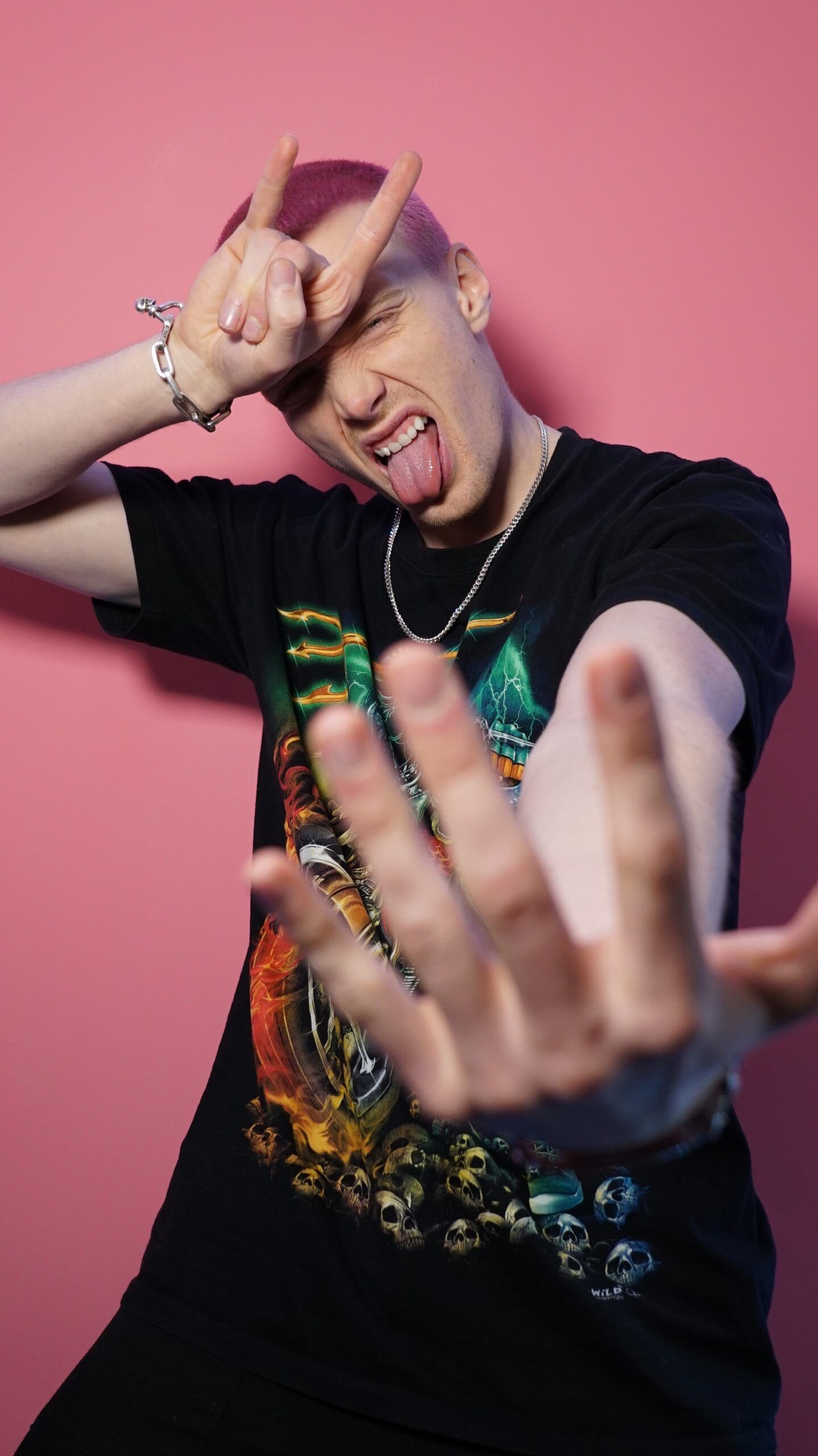
I listened to your chat with YUNGBLUD on his podcast when he compared you to John Peel and I like what he said about what sets you apart from others, which is the direct relationship you make with the artists you spotlight on your show. How does it feel to be compared to John Peel?
It was lovely but feels unnecessary because radio is an entirely new landscape now. It does mean a lot and I always appreciate it when he says stuff like that because John Peel has legendary status in championing new rising artists and was a gateway for so many new bands but radio has changed and music has changed so much, too. John Peel used to be the first person to play things and now no one plays anything ‘first’ anymore. Now, it’s very much from a champion standpoint and asking do we believe in this artist? YUNGBLUD is a great example; no one was playing him on the radio, he didn’t have people who believed and backed him 100%. When I got my show it was clear as day that he was an artist we had to get behind. He was my second session on the show, we debuted ‘Loner’, he’s come for a million interviews, sometimes we just call him up to chat. That’s what happens when you get behind someone.
How does it feel to know artists like YUNGBLUD, someone who is so creative and loves to push boundaries, really cares about your opinion and what you have to say?
It comes back to what we were saying before — I feel like I’ve got an ear and an understanding of what a younger generation is looking for and what sounds good and what doesn’t. I’ve known him for a long time before we were both in a heightened position so there’s a very natural friendship between us. He will send me stuff and ask me what I think and it’s humbling to know I can give feedback to one of the most exciting new artists on the planet. The relationship with artists is really important and it’s something I strive to do, but it’s not a situation where I feel like I need to be friends with everyone. It’s an I fucking love your music and I’d love to support you and if we can have a beer while doing it, why not? type of situation. Most bands are receptive to that and it creates a movement and energy that just feels so good.
You and I share something in common, which is championing rising acts and shining a light on those who are just breaking it into music. For our weekly playlists, it’s important to me to highlight rising artists rather than giving spots to artists like Justin Bieber or Ariana Grande who don’t exactly need a playlist spot. Why is it important for you to give love to lesser-known acts?
Because the more established bands and artists will respect you more. If you set out with a mindset of only being there for the big bands, that’s fine, but you’ll gain more respect from those people by being a champion of the newer stuff and helping the new acts come through. For me, I just want people to succeed. I’m interested in the younger generation, how they are thinking differently, and how they engage with artists differently. It’s helped give me new ideas which is exciting and motivating. In the end, it’s just a natural love for supporting new music.
Yeah, I know for me it’s always nice to see smaller artists see 1883’s playlists and get excited about having a feature. For me, it’s just another Friday playlist. For them, it’s just another step in the right direction.
The real big moment for people like you and I comes when the band has a big moment—they get a #1, they get signed to a label, or something else—and you were there from the beginning. Artists don’t forget that stuff.
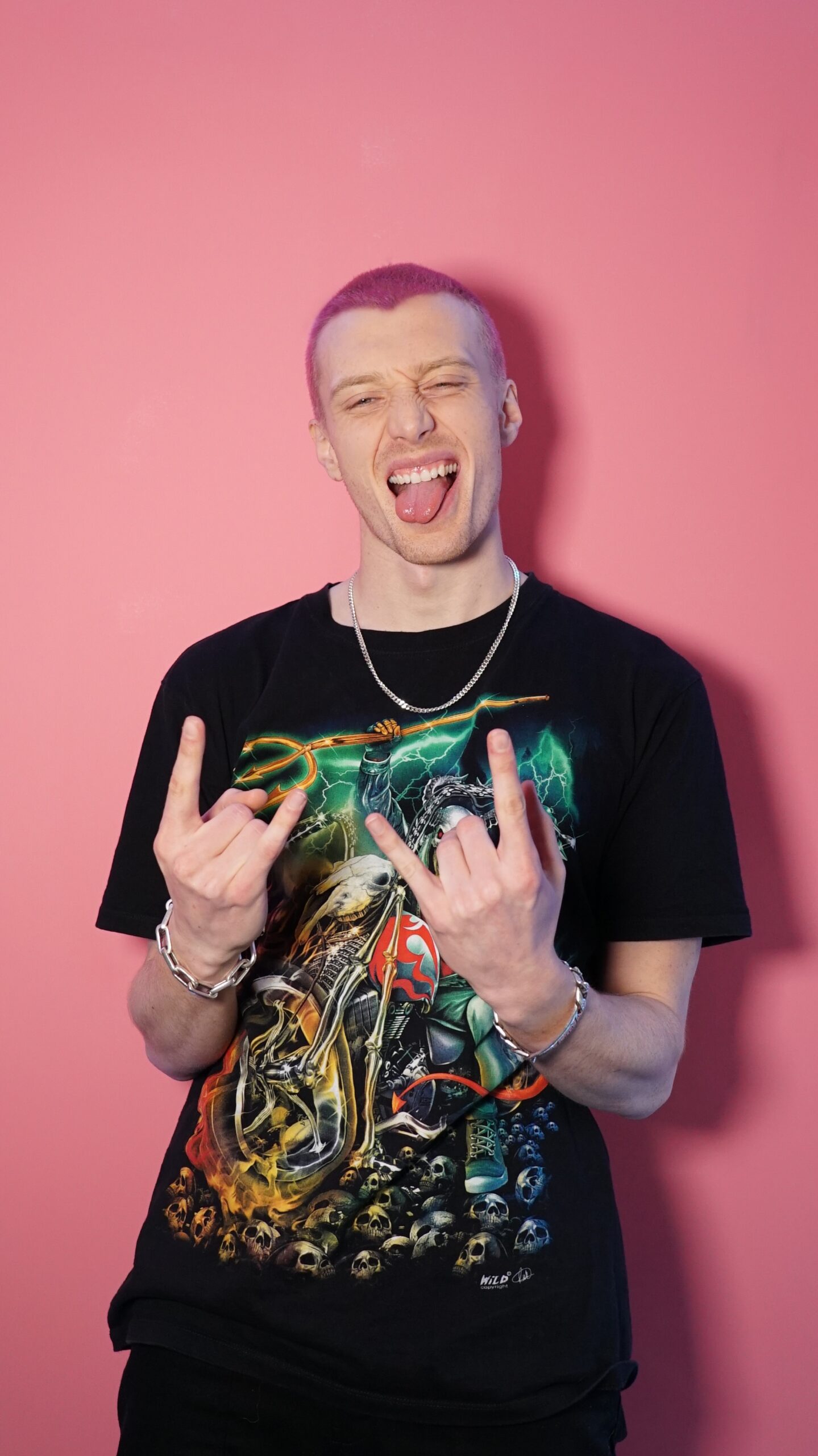
Although the music industry has made a lot of changes, I still feel like toxic masculinity exists in some aspects. You’re very free with your image and not conforming to any sort of societal standards. When you first started pursuing music broadcasting as a career, did you have to deal with any situations where you felt like you needed to box yourself in?
I don’t think anyone has been outright offensive to me, but it was definitely within my head and what I perceived other people to potentially think of me. Earlier in my career, I never had the confidence to be as free as I am now because I was stressed about what people would think of me or what it could do with my career in the future. A lot of this stuff is down to timing and I would never regret not doing it because you have to go on a journey and learn. Now, we’re living in a time where everyone is open to be who they are. I love doing photoshoots and looking more feminine and dressing differently and showing off a new side of who I am. I’m a straight white guy in the music industry—it’s difficult for me to be offended and there’s a privilege there. I need to be aware of the people who aren’t so lucky, support them, and lift them. Using my platform to highlight women in music, transgender artists, and everyone else who isn’t a straight white man.
Seeing someone embrace who they are helps other people embrace who they are, too.
I know what you mean. I’m not old, but I will be at some point, and there’s always going to be a constant flow of 18-year-olds who I’m broadcasting to. How they live their lives and how open they are is going to change constantly so I have to make an effort to both do the same and understand them. I’m a role model as a broadcaster; people listen to you and look up to you, sometimes without even realizing it themselves. You have to be switched on with them as much as possible.
Is the label ‘role model’ something that stresses you out?
The opposite — I love it. I’ve looked at people in similar positions and I don’t think they’ve given it as much attention as they should. That is not good if you’re trying to connect with your audience, especially a young one that craves connection and stimulation.
Lastly, what’s coming up next for you that you’re excited about and who are the 3 acts we should be paying attention to?
Hopscotch will be returning later this year—date and format to be announced—but it’s going to be bigger and better than ever. It’s going to be an epicentre of culture and new music. It’ll retain the same idea of bigger bands performing as a way of paying it forward by playing an undercover secret headline slot somewhere. In terms of three artists… Shygirl and the song ‘Siren’, absolutely amazing. She’s one of those acts that are very genre-fluid, like Charli XCX and Sophie. So much grit and attitude. Police Car Collective, a band from Liverpool, who I’m obsessed with. They are great because their sound is a very new wave tapped into the 80s like The Cure and The Smiths, but what they talk about in their music is so relevant to the kids of the day. It feels like a vortex mix of cultures from different decades. And the last one…. Have you heard of Cassyette? The perfect blend of hyper pop meets gothic metal.
I love the genre-blending so much, there is no need for genre labels anymore.
There’s no need at all! I prefer that because it allows me to describe it in this crazy way and that’s always fun.
Well, thank you for such a lovely chat. I really enjoyed myself. Anytime you want to talk about The Mandalorian, let me know.
I loved it, thank you. And I’ll definitely take you up on that.
Interview by Kelsey Barnes
Jack Presents Future Artists weekdays on BBC Radio 1, click here for all episodes.

